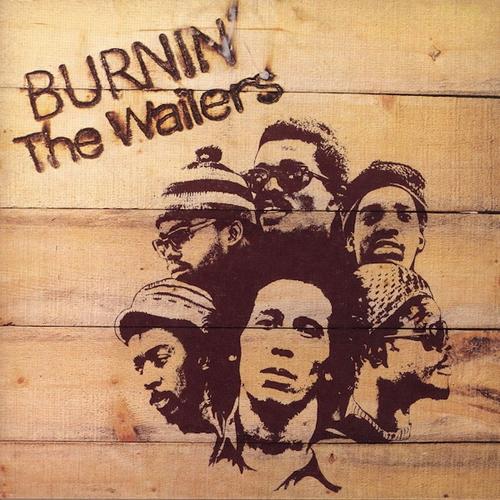3. The WailersBurnin’

I didn’t hear The Wailers album in 1973, I can’t claim to have been that hip! But basically I was really into what Strummer described as ‘UK pop reggae’ in ‘White Man From Hammersmith Palais’, the Tighten Up albums, Owen Gray; at the school disco, a gang of us would all sing at the top of our voices ‘Young, Gifted And Black’ by Bob & Marcia. Then one day, someone came to school with an Island Records sampler which had a Bob Marley And The Wailers track on it called ‘Concrete Jungle’ and it was reggae with guitar solos all over it and I was like: "flippin’ heck, this is incredible! Desmond Dekker with guitar solos, wow, it’s gonna do my brain in!" I couldn’t imagine you could marry those two things together. In 1974, just as I left school, Capital Radio came on air. There was a power workers strike and the government were switching off the televisions at 10 o’clock in the evening to encourage us all to go to bed and not use up electricity. Blackouts. Just as Capital Radio came on, they were playing the shit out of ‘Natty Dread’ by Bob Marley. It was only when I started to get into it, I found that there was politics on that, but Burnin’ best articulates that sensibility that was so informative in punk, that met punk right at the crossroads of the seventies and inspired Rock Against Racism which, in turn, politicised me. Part of the reason why I hated the National Front was the idea of expelling all the black people in the UK – people thought it was feasible, it was an idea people thought it might be possible to do. The idea was so unspeakable to me and think of all the great music we’d lose – the likes of Dave And Ansell Collins – the idea of that being banned really was so ridiculous. This album also has ‘I Shot The Sheriff’ which is ironic because it was Eric Clapton’s comments in 1976 about Enoch Powell led to the founding of Rock Against Racism. All these things came together in Victoria Park in Hackney in 1978 at that first Rock Against Racism concert. That in turn is an event that has informed me as a political songwriter as I look at how music has an effect on the way the world is. It’s all based on my experience at that gig – it made me feel like I wasn’t the only person in the world who cared about these things. When I got to the park, there were 100,000 kids and I realised that my generation were going to define themselves in opposition to discrimination of all kinds because there were gay men there – my initial reaction was "what are all these gays doing here? It’s about black people!" But I had never met any ‘out’ gay men so please don’t judge me on that! It was being in that audience that gave me the courage of my convictions. It wasn’t The Clash, it was that audience. The role of the songwriter is to make the audience feel they’re not alone whether it’s relationships, politics, whatever, you momentarily create a community that recharges everyone’s batteries. You can’t change their world but you can give them another perspective, a sense of fellow feeling.


